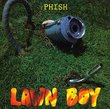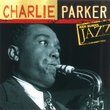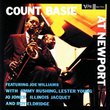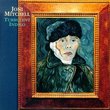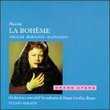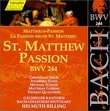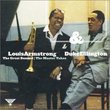| All Artists: Peter Glossop, Giuseppe Verdi, Walter Hagen-Groll, Herbert von Karajan, Berlin Philharmonic Orchestra, Berlin State Opera Chorus, Mirella Freni, Jon Vickers, Michel Sénéchal, Aldo Bottion, Stefania Malagu Title: Giuseppe Verdi: Otello Members Wishing: 0 Total Copies: 0 Label: Capitol Release Date: 10/25/1990 Genre: Classical Styles: Opera & Classical Vocal, Historical Periods, Modern, 20th, & 21st Century Number of Discs: 1 SwapaCD Credits: 1 UPC: 077776930824 |
Search - Peter Glossop, Giuseppe Verdi, Walter Hagen-Groll :: Giuseppe Verdi: Otello
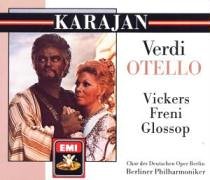 | Peter Glossop, Giuseppe Verdi, Walter Hagen-Groll Giuseppe Verdi: Otello Genre: Classical |
Larger Image |
CD DetailsSimilarly Requested CDs
|
CD ReviewsThe greatest Otello (despite the sound) Santa Fe Listener | Santa Fe, NM USA | 09/25/2005 (5 out of 5 stars) "You can get this Otello in the EMI studio version being reviewed here or as a live performance on Opera d'Oro, both almost identical in every detail musically. Vickers was the supreme Otello of his generation, with a huge, magnificent voice and heartbreaking pathos--he doesn't bluster or fake it emotionally for even a bar. His death scene is one of the great things in the Verdi canon on disc. Freni is equally wonderful, exemplary in eveyr way musically and a prime example of how to act through the voice. Her Desdemona is ravishing and her last-act solos heartrending. The only weak member of the cast, unfortunatley, is the English bass-baritone Peter Glossop as Iago. (Karajan had a weak Iago on his famous Otello with Tebaldi and Del Monaco on Decca, too.) Glossop has dramatic force but no venom, and his wobbly voice isn't adequate to the role. While we're mentioning negatives, the sound is very uneven and doctored with. That's typical of Karajan's EMI period because he tried to take over the producer's job and botched things--you'll never find one volume level that suits both the softest and loudest music. Even so, these negatives can't override the enormous achievement this set represents--a classic Otello that will live a long, long time." Compelling but flawed - and cut Ralph Moore | Bishop's Stortford, UK | 02/25/2009 (4 out of 5 stars) "This recording was made as the soundtrack for Karajan's film and simultaneously released on CD. It captures Vickers in more dramatic and compelling form than his earlier, rather restrained, set with Serafin but there is a frustrating number of occasions when his voice cracks or falters, and in his very first declamatory passage he mispronounces "trasfusa". Given Karajan's clout and search for perfection, I wonder why these flaws were not corrected or edited out - but this is nonetheless a truly dramatic performance, anguished and wholly convincing; his was the ideal "Otello" sound and he gets better as the opera unfolds. I do not agree with the Santa Fe listener that the recently deceased Glossop - who was, by the way, very much a baritone and not, as he states, a bass-baritone - is weak as Iago; while his is not the perfect Verdi voice, he has a great upper extension, plenty of bite and his exchanges with Vickers are riveting - he oozes venom. I do not hear "wobble" - just vibrancy. He is not Gobbi, true - but Gobbi was not in best voice when he recorded his Iago, despite the many subtleties of his assumption; for Gobbi at his best, try the live Tokyo performance with Del Monaco (see my review). The vocal glory here lies above all in Freni's meltingly beautiful Desdemona; her pianissimi rival those of Caballé.
Unfortunately and inexplicably, Karajan makes a crucial cut of forty bars in the choral ensemble "Dove guardi splendono raggi" in Act 2. As was increasingly the case at this stage of his career, his tempi are too languorous at times - but again, at others, he injects great drama and tension. The recording suffers from his excessive manipulation of the sound planes so that often voices seem recessed or surrounded by a haze but the singers are good enough to make this flaw less noticeable. The Berlin Phil play wonderfully; never has this score sounded so sonorous. Supporting singers are fine - especially the young José Van Dam's commanding Lodovico. It's a great studio recording that could have been perfect." |

